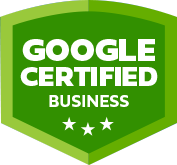5 Expensive Mistakes in AdWords

Perhaps the most powerful advertising resource available today, Google AdWords is a major asset for anyone doing business online. It enables businesses to target precisely who they want, stretching their advertising dollars much farther. But as professionals in the digital marketing space, our team at Elevation Marketing frequently sees businesses make crucial – and costly – mistakes when using AdWords. This is understandable for anyone just starting to use AdWords, as these mistakes are often not at all obvious. But we want to help our clients get the most they can out of their marketing budget and ensure their AdWords spending is put to good use. To that end, we’re sharing a handful of Google AdWords tips to avoid making the five most expensive AdWords mistakes.
1) Improper geographic targeting
One easy way to quickly waste a ton of budget is to setup your geotargeting improperly. Whether you’re targeting customers in a specific zip code, city, state, or country, chances are you only want your ads to show within those parameters. However, AdWords features certain advanced settings that make geotargeting a bit more nuanced in terms of what relationship to your chosen location you want your potential customers to have. Essentially, you have three options:
- People in, or who show interest in, your targeted locations
- People in or regularly in your targeted locations
- People who show interest in your targeted locations
The default target is “People in, or who show interest in, your targeted locations.” This means Google can show your ads to searchers far outside your geographic parameters if they have shown interest in the area based upon their recent search history. For some businesses, this may not matter much, but it’s particularly relevant for those with brick and mortar stores or those who only service a specific area. If this is how your business operates, be sure to select “People in or regularly in your targeted locations” to avoid wasting your budget.
2) Not using match types correctly
Keywords help Google decide who should see your ads when searching, and keyword match type is a parameter that determines how closely someone’s search must be to your keyword in order to cause your advertisement to be shown. There are four match types you can use in AdWords:
- Broad match
- Broad match modified
- Phrase match
- Exact match
AdWords defaults to using broad match, unless otherwise specified, and this can be an expensive problem. While phrase match and exact match will only trigger your ad when someone searches for your precise keyword (or very close to it), broad match gives Google a bit too much creative leeway when it comes to showing your ads. For example, if your keyword is “dairy free milk,” your ad may still be shown to people who search for “soy milk,” “dairy milk,” and “dairy free cheese.” While the first may be a good thing (if soy milk is the kind of dairy free milk you’re selling), the other searches would result in a great deal of irrelevant traffic for your ad, and you’ll be footing the bill for it.
Thus, one of our top Google AdWords tips is always to use a healthy mix of broad match modified, phrase match, and exact match. Broad match modified allows for close variations, but not synonyms. So, if your keyword were “women’s clothes,” broad match modified may display your ad on searches such as “womens clothes” and “clothes for women,” but not “ladies clothes.” Phrase and exact match are more stringent (and quite similar to one another). Phrase match would include searches for your keyword as a phrase within a search (i.e., “buy women’s clothes” but not “buy women’s cheap clothes”), while exact match more or less requires that the search be for your precise keyword (i.e. “women’s clothes,” but not “buy women’s clothes”). Using a mix of these match types helps you pinpoint the people most likely to convert while sorting out those for whom your ad would be mostly irrelevant.
3) Poor Ad Copy
It’s always important to write solid copy when trying to convince potential customers to do business with you, but it’s especially important to remain vigilant with your ad copy. Ad copy is quite often one of the first points of contact between your business and a new lead, making it a crucial first impression. Proofread all of your ad copy and be sure to A/B test it constantly, sorting out what works and what doesn’t for your target audience.
Beyond this, you should also be taking full advantage of all ad creative features. Over the last few years Google has made several changes to their ad creative options. Today you can run up to 3 title lines, with 30 characters each, and 2 description lines, with up to 90 characters each—not to mention a host of extensions. If you’re not using all these features, your CTR is likely suffering and causing your average CPC to rise as a result. Making your copy the best it can be and taking full advantage of every creative feature is one of the most crucial Google AdWords tips to keep in mind.
4) Lack of Negative Keywords
If it wasn’t clear by now, setting up your keywords properly is among the most vital parts of running a successful ad campaign. This doesn’t end with choosing the right match type either—dictating who shouldn’t see your ads is every bit as important as who should. In that respect, negative keywords are essential. Negative keywords allow you to select search queries for which you don’t want your ad to appear. For example, if your business sells bumper stickers and decals for cars, you probably don’t want your ad to show up every time someone looks into renewing their “license plate sticker.” Likewise, if there’s a brand that uses a major keyword from your niche as part of their name, you may want to exclude searches for their brand name. Adding negative keywords via your search query report should be a part of your regular weekly optimization efforts so you can make absolutely sure that your ads are targeting those who may be interested in what you have to offer.
5) AdWords Express
If regular Google AdWords seems a bit daunting, Google offers another option that might seem like a solid alternative at first glance: AdWords Express. According to Google, you can set your ad up in a mere 15 minutes and forget about it as it makes you money. What’s not to love?
Unfortunately, a lot. Or more accurately, there’s not a lot to love, because there’s not much you can do with AdWords Express at all. AdWords Express is more or less AdWords on training wheels. It’s quick and simple to use, but that’s because it gives you fewer customization options. You know all those match types we talked about? With AdWords Express, you can only use broad match. Oh, and negative keywords? You can’t use those, either. In fact, with AdWords Express, you can’t even choose specific keywords; rather, you choose a category for your business and Google chooses them for you.
In short, AdWords Express gives you even less control over your campaign settings, meaning you’re leaving way too much in the hands of Google’s AI to manage your ad budget. And while this might not seem like the worst thing—after all, who knows better how to display your ad in searches than Google itself?—the bottom line remains that, fundamentally, Google is trying to make money for Google, not you. While it might be a bit more of a learning curve to run a successful ad campaign while doing weekly upkeep with keywords, you’re a lot less likely to waste a lot of money on AdWords this way.
Looking for More Google AdWords Tips?
At Elevation Marketing, we understand how difficult it can be for businesses to get the hang of using AdWords effectively and efficiently. That’s why we offer audits for existing AdWords programs—completely free of charge. We have more than 13 years of experiencing managing and optimizing AdWords campaigns for our clients, which include everything from small businesses to enterprise companies. If you need a hand, we’re here to help! Contact the Elevation Marketing team today for your free AdWords audit.




